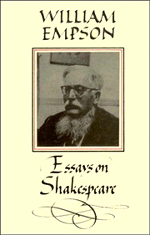3 - Hamlet
Published online by Cambridge University Press: 01 March 2011
Summary
One feels that the mysteries of Hamlet are likely to be more or less exhausted, and I have no great novelty to offer here, but it has struck me, in the course of trying to present him in lectures, that the enormous panorama of theory and explanation falls into a reasonable proportion if viewed, so to speak, from Pisgah, from the moment of discovery by Shakespeare. To do that should also have a relation with the impressions of a fresh mind, meeting the basic legend of the play at any date. I was led to it from trying to answer some remarks of Hugh Kingsmill, in The Return of William Shakespeare, who said that Hamlet is a ridiculously theatrical and therefore unreal figure, almost solely concerned with scoring off other people, which the dialogue lets him do much too easily, and attractive to actors only because “they have more humiliations than other men to avenge”. A number of critics seem to have felt like this, though few have said it so plainly; the feeling tends to make one indifferent to the play, and over-rides any “solution of its problems”, but when followed up it leads to more interesting country. I think it allows of a reconsideration of the origins, along which one might even take fresh troops into the jungle warfare over the text.
The experts mostly agree that Kyd wrote a play on Hamlet about 1587, very like his surviving Spanish Tragedy except that it was about a son avenging a father instead of a father avenging a son.
- Type
- Chapter
- Information
- William Empson: Essays on Shakespeare , pp. 79 - 136Publisher: Cambridge University PressPrint publication year: 1986
- 1
- Cited by



